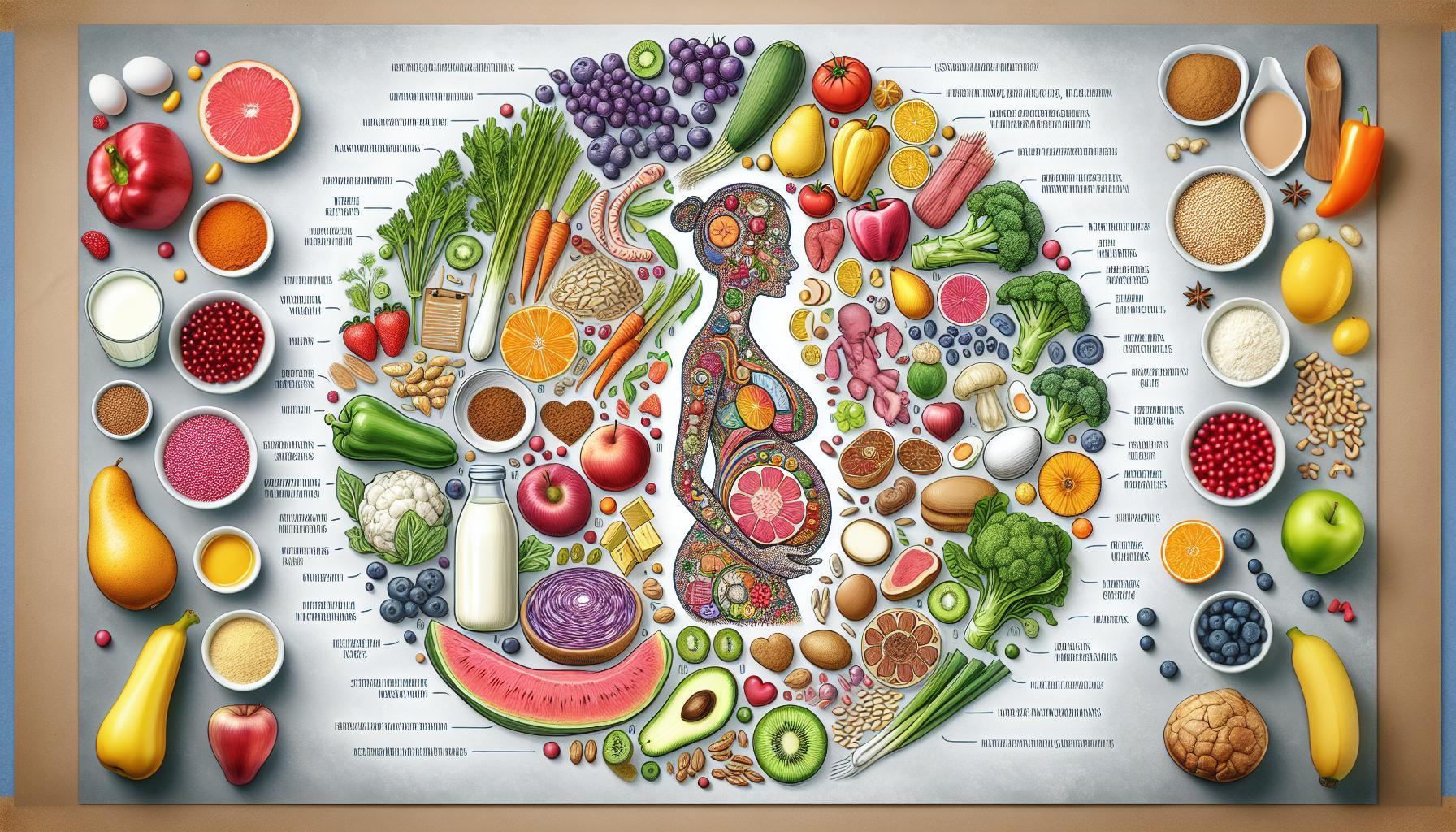Welcome to another engaging blog post where we delve into the fascinating topic of “Nutrition for Pregnancy and Lactation”. Anyone embarking on the exciting journey of motherhood knows that eating the right foods before, during and after pregnancy is essential not only for the health of the mother, but also for the baby’s growth and development. Thus, understanding the Key Nutrients for Fetal Development , practicing safe eating habits during pregnancy, and employing nutritional tips for breastfeeding mothers make a significant difference in this phase of life.
In this comprehensive post, we’ll explore the critical aspects related to nutrition during these crucial phases: pregnancy and lactation. Maintain close attention to glean useful insights and actionable strategies to support your journey towards healthy motherhood and child nurturing. Let’s dive right in!
The Role of Balanced Diet for Pregnancy
A balanced diet during pregnancy is the cornerstone of a healthy pregnancy journey. Consuming a variety of foods from different food groups ensures the mother gains all necessary nutrients to support the growing fetus.
Adequate Caloric Intake During Pregnancy
One of the crucial aspects of a balanced diet during pregnancy is maintaining an adequate caloric intake. Pregnancy involves supporting not only your nutrient needs but also those of your growing baby. Therefore, an incremental increase in caloric intake, especially in the second and third trimesters, is essential.
Vitamins and Minerals Sought For Pregnancy
Our bodies require vitamins and minerals to function optimally, but these requisites increase manifold during pregnancy. These elements support the growth and development of the fetus and maintain the mother’s health.
Importance of Folic acid during Pregnancy
Folic acid is one of the essential vitamins during pregnancy. It plays a critical role in preventing neural tube defects in babies, thereby emphasizing its significance in a pregnant woman’s nutrition.
Nutrients Boost during Lactation
Nutrition during lactation often gets overlooked, but it’s equally significant in a woman’s postpartum journey. Eating a well-balanced diet ensures the mother produces high-quality, nutrient-rich breast milk.
Increased Energy demands during Lactation
During lactation, a woman’s energy demands increase to support the production of breast milk. Consequently, a mother’s diet during this phase should cater to these heightened energy needs to maintain optimal health and nourishment.
Importance of Hydration During Pregnancy and Lactation
Hydration is another crucial aspect of nutrition for pregnancy and lactation. Adequate water intake supports various body functions and maintains good health, especially during pregnancy and lactation.
Role of Hydration in Breast Milk Production
Sufficient hydration facilitates breast milk production. Despite water serving no direct nutritional value, it plays a crucial role in the lactation process, emphasizing its importance during this period.
Managing Healthy weight gain during Pregnancy
Healthy weight gain during pregnancy is crucial for the well-being of both mother and baby. It helps prevent complications and supports the growth and development of the fetus.
Balance of Nutrient Rich Diet and Physical Activity
Achieving a balance between a nutrient-rich diet and physical activity during pregnancy helps manage healthy weight gain. It also contributes to maintaining a healthy pregnancy and aids in postpartum weight loss.
How to Deal with Common Nutritional Concerns
Pregnancy and lactation bring about numerous changes in a woman’s body, leading to potential nutritional concerns. Understanding and addressing these concerns can make the journey smoother and more enjoyable.
Addressing Common Issues like Nausea and Constipation
Dealing with common issues such as nausea and constipation during pregnancy involves certain dietary tweaks. Consuming smaller, frequent meals and including high-fiber foods can provide effective relief.
Conclusion
The journey of motherhood can be incredibly fulfilling, especially with a keen understanding of optimal “Nutrition for Pregnancy and Lactation.” Consuming a balanced diet, managing safe weight gain, supplementing with essential vitamins and minerals, hydrating adequately, and handling nutritional concerns effectively are the pivotal components of this journey. We believe that this blog post has equipped you with the vital knowledge needed for this beautiful life phase.
Frequently Asked Questions – FAQs
1. What is the increased caloric intake during pregnancy?
During pregnancy, women are recommended to increase their caloric intake by about 340 calories per day in the second trimester and about 450 calories per day in the third trimester. This additional energy supports the baby’s growth and the mother’s metabolism and increased body mass.
2. Why is folic acid essential during pregnancy?
Folic acid is crucial during pregnancy as it helps prevent neural tube defects in the developing fetus, such as spina bifida. The recommended dose is 400 to 800 micrograms daily, starting at least one month before conception and continuing through the first trimester.
3. What are the increased energy demands during lactation?
During lactation, the energy demands increase by approximately 500 calories per day. This additional energy supports the production of milk and helps ensure that the mother can maintain her health while breastfeeding.
4. How does hydration influence breast milk production?
Hydration is vital for breast milk production. Adequate fluid intake helps maintain the milk volume and prevents dehydration. Nursing mothers should aim to drink at least eight cups of fluids daily to support optimal milk production.
5. How to manage a healthy weight gain during pregnancy?
Managing healthy weight gain during pregnancy involves eating a balanced diet rich in nutrients, engaging in regular, moderate exercise, and monitoring weight gain to align with guidelines specific to your pre-pregnancy BMI. Typically, a total gain of 25-35 pounds is recommended for women with a normal BMI.










